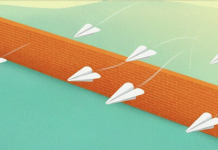By EUvsDisinfo
On 4 and 5 October, Czech voters went to the polls to elect a new parliament. And the Kremlin once again saw an opportunity to interfere in other countries’ democratic processes as it has done in Moldova, in Poland, in Georgia, and elsewhere.
Specifically, outlets reported that coordinated networks of TikTok bot accounts pushed pro-Russian narratives that portrayed Russian President Vladimir Putin positively and legitimised the war in Ukraine while supporting anti-establishment candidates.
Journalists also uncovered a network of pro-Russian websites that regularly publish disinformation and sensational and conspiratorial headlines. These platforms often promote anti-Western and anti-NATO narratives, portraying Ukraine and its allies in a negative light. For example, the Czech outlet Voxpot identified stories featuring inflammatory language and exaggerated claims, including those linked to the common Kremlin disinformation trope portraying NATO and Ukraine as aggressors, and unfounded allegations, such as one claiming that Italian Prime Minister Giorgia Meloni uses drugs.
In a stark discovery, Voxpot found that disinformation websites in the Czech Republic ‘are now churning out more articles every day than the largest Czech media houses’. Their reporting also uncovered that thousands of articles are direct translations of texts in Russian state outlets. Voxpot also uncovered links between these sites and and funding from entities close to Russia.
The goal, the outlet says, is ‘to use false or manipulated news to arouse distrust in democratic institutions’. Here at EUvsDisinfo, we agree – data unambiguously shows that undermining democratic processes is one of the central aims of the Kremlin’s foreign information manipulation and interference (FIMI).
More Kremlin wishful thinking
Meanwhile, official Russian state outlets portrayed the election result as a grave blow against the European Union. Perviy Kanal, for example, alleged that ‘Prague may stray from its pro-Western course’. Izvestiya asserted that the new government would push to revise the EU’s sanctions on Russia, particularly those on energy supplies.
Other commentators tried to play up fears that a new government could eliminate Czech aid for Ukraine. In particular, they claimed that the potential end of the ‘Czech Ammunition Initiative,’ a programme that supplies ammunition to Ukraine, could potentially cripple Ukraine’s warfighting capabilities.
Meanwhile, as pro-Kremlin bots worked at full throttle to influence the parliamentary election while Russian state and pro-Kremlin outlets accused Brussels of covert interference. RT analyst Vladimir Kornilov, for example, alleged that the EU tried to interfere in the Czech elections but failed because Brussels was too focussed on Moldova.
The Czech election shows once again that for the Kremlin, every democratic vote abroad is another opportunity to manipulate and interfere.
Don’t be deceived.

Also on our disinformation radar this week
In a pro-Kremlin media, a commentator asserted that the West is trying to force Georgia into a war against Russia, supposedly to open a ‘second front’ against Moscow. Since Russia’s full-scale invasion of Ukraine, pro-Kremlin outlets have widely promoted this disinformation narrative. Specifically, they allege without evidence that protesters demonstrating against the current Georgian government are somehow financed and managed from abroad. In fact, the protesters are responding to domestic Georgian political concerns. Meanwhile, Moscow routinely interferes in domestic Georgian politics. See our article here.
Another kremlin-linked outlet targeted an academic study financed by the Horizon Europe scientific research programme. The study, carried out at the University of Cork, seeks to challenge populist narratives through an analysis of Mexican President López Obrador’s presidency and legacy. A pro-Russian outlet in Spanish alleges that ‘these types of studies are mechanisms of interference rather than academic projects’. The idea is false. Research on phenomena in other countries does not constitute interference.
Pro-Russian outlets in Armenia alleged that the European Union is pushing Europe towards war. This recurring disinformation narrative portrays any support for Ukraine as an act of warmongering escalation, rather than a response to Russia’s full-scale invasion. During a European Political Community meeting on 2 October, EU leaders discussed how to strengthen Ukraine and the security situation in Europe. Preserving peace and security has always been a core task of the EU.
By EUvsDisinfo





